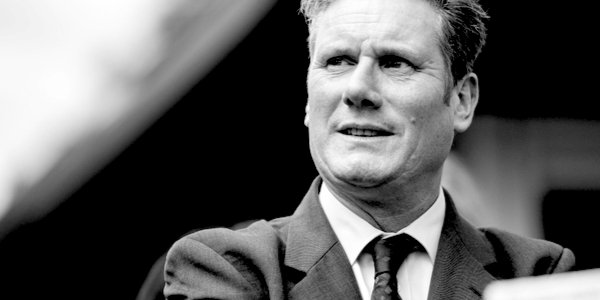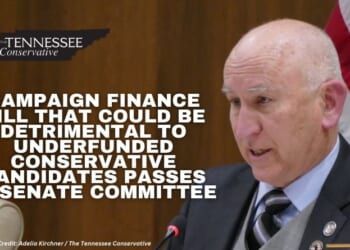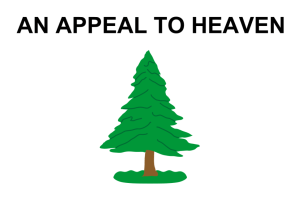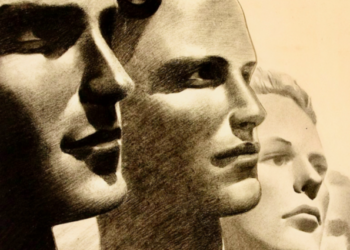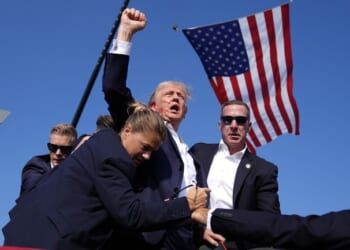SIR KIER Starmer’s bold intervention into the debate about Ukraine has not only reignited a desire for a peaceful conclusion but has once more shone an admiring international spotlight onto the UK Prime Minister.
Like many of his parliamentary colleagues, it is Sir Keir’s CV that highlights why he is uniquely qualified for the role of mediator. Having served as a Brigadier in the British Army and been awarded the Military Cross, he brings an unrivalled skill set to this seemingly intractable problem.
Renowned for his relentless shuttle diplomacy, observers have compared him to a latter-day mixture of Henry Kissinger and Charlie Cairoli. There can be no mistaking Sir Keir’s determination to bring about an equitable solution; his military hinterland, his legendary forensic approach and his inspirational oratory will serve him well in this tricky task.
I have gone to Downing Street to talk with him about Ukraine, America and Russia and how he feels the UK can serve as a ‘bridge’ between the three parties.
Unlike previous visits, I am not shown into the Prime Minister’s ground floor office but ushered instead immediately downstairs, where I find myself standing before what looks like a fortified entrance. The PM’s assistant bangs loudly on the door, and there is the sound of numerous bolts being drawn from the other side.
The door swings open to reveal a darkened room with a sizeable desk on which a red telephone sits. On the wall is a large Bartholomew’s ‘map of the world’, with Ukraine highlighted in orange.
The Prime Minister has his back to me and is bent double over a Primus stove stirring an aluminium mess tin. ‘Bully beef,’ he calls out, ‘delicious and invigorating.’ He turns and motions me to sit down.
For the first time, I am able to fully assess his wardrobe. He has on a pair of camouflage combat trousers, a tight-fitting round-neck T-shirt and, on his head, he wears a battered black Homburg. It is an undeniably odd ensemble, and a world away from his traditional suit and tie at the despatch box.
I started by asking him if he is tired from his constant visits to Europe, and how he feels he can orchestrate what has hitherto seemed an unreachable goal.
‘Let me start by saying that I will always go the extra mile to halt hostilities. The EU and the UK have striven tirelessly over the last three years to bring the combatants to the negotiating table, and it remains a huge regret that so far, we have been unable to achieve that.
‘The President of the USA has regrettably blundered into something that he really is ill-qualified to be involved with. He lacks the military muscle and political acumen that are the hallmarks of the EU. By engaging with Russia directly, it will only exacerbate an already fraught and complex situation.’
He floated the idea of a ‘reassurance army’, and I asked Sir Keir if he could elaborate on this proposal.
‘I am delighted that this initiative has captured the world’s attention. Sometimes, one needs to think outside the box and, as the SAS say, who dares wins. Whilst people talk about boots on the ground, I think that phrase has certain negative connotations; personally, I believe the idea of a reassuring military presence is far mor acceptable to all parties, be that in fatigues or more casual dress.
‘Of course, it might be necessary to rethink this protectorate legion, and we might well be required to look at alternatives. If that is the case, I am happy to suggest a range of acceptable substitutes, such as a comforting army, a soothing army, a calming army, a heartening army or possibly an uplifting army.’
I probed, ‘Isn’t the British Army depleted to such an extent that informed observers suggest it couldn’t fight its way out of a wet paper bag?’
‘Not sure where you heard that from, but the British Army – just like the NHS – is the envy of the world. They are a well-funded and, more importantly, well-resourced body of men, women, and those identifying indeterminately.’
‘Can Britain,’ I asked, ‘deliver lasting peace? Or are we, as some suggest, just a third-rate bankrupt island mired in stupidity and governed by imbeciles?’
Sir Keir looks startled, he reaches for a large cigar resting in the ashtray and asks his aide for a tumbler of whisky. He stands with his back to the map and stares at me quizzically.
‘There is no country greater than Great Britain. I will fly to Washington next week to cement our special relationship with President Trump, and trust me, I will be listened to with respect and gratitude.’
With that, he reaches for a siren suit hanging behind the door.
No one can doubt our Prime Minister’s deep sincerity and unparalleled ability; if anyone can shape world events, it is him.

